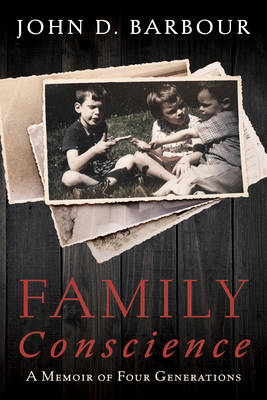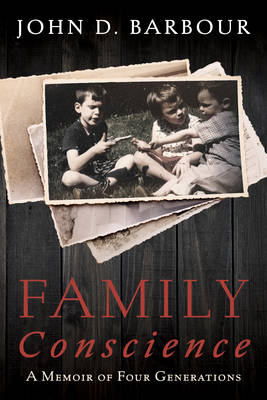
- Afhalen na 1 uur in een winkel met voorraad
- Gratis thuislevering in België vanaf € 30
- Ruim aanbod met 7 miljoen producten
- Afhalen na 1 uur in een winkel met voorraad
- Gratis thuislevering in België vanaf € 30
- Ruim aanbod met 7 miljoen producten
Zoeken
€ 43,45
+ 86 punten
Uitvoering
Omschrijving
This memoir explores the role of conscience in four generations during a century of family history. It begins with the suicide of Barbour's maternal grandfather and the impact of this traumatic event. Later chapters describe his interactions with other grandparents, parents, two uncles, siblings, a former spouse, and two sons. Family Conscience depicts the values and patterns of self-assessment that members of this family share and also the ways their differing moral views have been influenced by interactions with one another. Barbour interprets how he and family members have understood work and vocation, religious commitments, political and economic values, choices about marriage and raising children, conflicts within the family, and other situations and issues. This thematic family memoir blends the genres of biography, oral interview, autobiography, essay, and cultural history as Barbour depicts how conscience was transmitted and transformed through the generations.
Specificaties
Betrokkenen
- Auteur(s):
- Uitgeverij:
Inhoud
- Aantal bladzijden:
- 304
- Taal:
- Engels
Eigenschappen
- Productcode (EAN):
- 9781532636370
- Verschijningsdatum:
- 17/06/2025
- Uitvoering:
- Paperback
- Formaat:
- Trade paperback (VS)
- Afmetingen:
- 152 mm x 229 mm
- Gewicht:
- 412 g

Alleen bij Standaard Boekhandel
+ 86 punten op je klantenkaart van Standaard Boekhandel
Beoordelingen
We publiceren alleen reviews die voldoen aan de voorwaarden voor reviews. Bekijk onze voorwaarden voor reviews.







